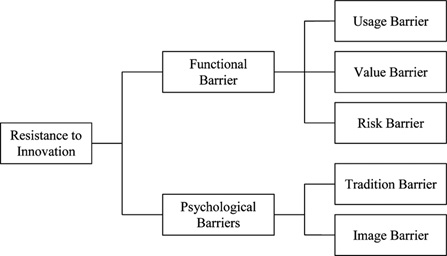Theory template

Acronym
NAT
Alternate name(s)
N/A
Main dependent construct(s)/factor(s)
Behavior (an individual's intention to act)
Main independent construct(s)/factor(s)
Situational factors or activators (awareness of need, situational responsibility, efficacy, and ability) and Personality trait activators (awareness of consequences and denial of responsibility).
Concise description of theory
Norm Activation Theory (NAT) is a psychological framework that aims to understand the factors influencing individuals' intentions and behaviors toward pro-environmental actions. It was initially proposed by Schwartz in 1977 [1] and has since been widely used in the study of pro-social [2] and pro-environmental behaviors [3].
At the core of NAT is the concept of "norm activation", which refers to the process through which individuals develop personal norms. Personal norms are individuals' self-expectations or feelings of moral obligation to engage in pro-social behaviors. These norms are constructed based on situational factors and personality traits [1,4].
The situational factors, also known as "situational activators," include awareness of need, situational responsibility, efficacy, and ability. Awareness of need involves individuals being aware of the negative consequences on others if they do not engage in pro-social behaviors. Situational responsibility refers to individuals feeling responsible for the negative consequences if they fail to act pro-socially. Efficacy refers to individuals' belief in their ability to perform pro-social behavior, while ability refers to their actual capability to do so.
On the other hand, the personality trait activators include awareness of consequences and denial of responsibility. Awareness of consequences is individuals' general awareness of the negative outcomes of not acting pro-socially, while denial of responsibility is the tendency to deny personal responsibility for any negative consequences [5,6].
NAT has been applied to study various pro-environmental behaviors, such as recycling, energy conservation, and sustainable transportation choices [7]. Research using NAT has shown that personal norms play a significant role in predicting individuals' intentions and behaviors related to pro-environmental actions.
.
Diagram/schematic of theory
(enlist your one or two figure as applicable)
- Figure 1: Types of Invocation Resistance (Source: Ram, S. and Sheth, J.N. 1989)
.
Originating author(s)
- Shalom H. Schwartz in 1977 [1]
Seminal article(s)
- Harland, P., Staats, H., & Wilke, H. A. (2007). Situational and personality factors as direct or personal norm mediated predictors of pro-environmental behavior: Questions derived from norm-activation theory. Basic and applied social psychology, 29(4), 323-334.
- Onwezen, M. C., Antonides, G., & Bartels, J. (2013). The Norm Activation Model: An exploration of the functions of anticipated pride and guilt in pro-environmental behaviour. Journal of Economic Psychology, 39, 141–153. https://doi.org/10.1016/j.joep.2013.07.005
- Shi, H., Fan, J., & Zhao, D. (2017). Predicting household PM2. 5-reduction behavior in Chinese urban areas: An integrative model of Theory of Planned Behavior and Norm Activation Theory. Journal of Cleaner Production, 145, 64-73.
- Shin, Y. H., Im, J., Jung, S. E., & Severt, K. (2018). The theory of planned behavior and the norm activation model approach to consumer behavior regarding organic menus. International Journal of Hospitality Management, 69, 21-29.
Originating area
Social Psychology
Level of analysis
Individual
Links from this theory to other theories
Value-Belief-Norm Theory (Stern et al., 1999)
IS articles that use the theory
- Udo, G., Bagchi, K., & Maity, M. (2016). Exploring factors affecting digital piracy using the norm activation and UTAUT models: the role of national culture. Journal of Business Ethics, 135, 517-541.
- Yazdanmehr, A., & Wang, J. (2016). Employees' information security policy compliance: A norm activation perspective. Decision Support Systems, 92, 36-46.
- Dalvi-Esfahani, M., Ramayah, T., & Rahman, A. A. (2017). Moderating role of personal values on managers’ intention to adopt Green IS: Examining norm activation theory. Industrial Management & Data Systems, 117(3), 582-604.
- Udo, G., Bagchi, K., Trevino, L., & Das, S. (2023). Using norm activation model and theory of planned behaviour to understand the drivers of cyberharassment among university students. Behaviour & Information Technology, 1-22.
- Zhang, X., Geng, G., & Sun, P. (2017). Determinants and implications of citizens’ environmental complaint in China: Integrating theory of planned behavior and norm activation model. Journal of Cleaner Production, 166, 148-156.
References
[1] Schwartz, S. H. (1977). Normative influences on altruism. In Advances in experimental social psychology (Vol. 10, pp. 221-279). Academic Press.
[2] Han, H. (2014). The norm activation model and theory-broadening: Individuals' decision-making on environmentally-responsible convention attendance. Journal of Environmental Psychology, 40, 462-471.
[3] De Groot, J. I., & Steg, L. (2009). Morality and prosocial behavior: The role of awareness, responsibility, and norms in the norm activation model. The Journal of social psychology, 149(4), 425-449.
[4] Schwartz, S. H., & Clausen, G. T. (1970). Responsibility, norms, and helping in an emergency. Journal of Personality and Social Psychology, 16(2), 299.
[5] Octav-Ionut, Macovei. (2015). Determinants of Consumers' Pro-Environmental Behavior – Toward an Integrated Model. Journal of Danubian Studies and Research. 5. 261-275.
[6] Abutaleb, S., El-Bassiouny, N. & Hamed, S. Using norm activation theory to understand intentions for collaborative consumption. Int Rev Public Nonprofit Mark 20, 245–268 (2023). https://doi.org/10.1007/s12208-022-00339-1
[7] Onwezen, M. C., Antonides, G., & Bartels, J. (2013). The Norm Activation Model: An exploration of the functions of anticipated pride and guilt in pro-environmental behaviour. Journal of economic psychology, 39, 141-153.
Contributor(s)
Ayushi Agarwal - Indian Institute of Management, Kozhikode, India
Date last updated
21 August, 2023
Please feel free to make modifications to this site. In order to do so, you must register.
